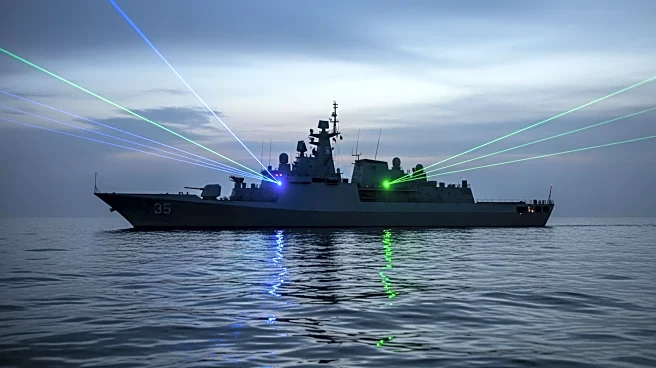What's Happening?
A Russian spy ship, Yantar, has been reported to use lasers to disrupt RAF pilots monitoring its activities in UK waters north of Scotland. This marks the first time such tactics have been employed by the vessel, according to Defence Secretary John Healey.
The ship, designed for intelligence gathering and mapping undersea cables, has entered UK waters twice this year. The UK government is taking this 'deeply dangerous' move seriously, with Healey emphasizing Britain's readiness to act. The Ministry of Defence has faced criticism for its reliance on US defence resources, with calls for the UK and European allies to bolster their capabilities.
Why It's Important?
The incident underscores the growing tensions between the UK and Russia, highlighting the strategic importance of undersea infrastructure. The use of lasers to disrupt surveillance operations represents a significant escalation in tactics, potentially threatening the security of critical infrastructure. The UK's response, including changes to the Royal Navy's rules of engagement, reflects the seriousness of the threat. This situation also raises concerns about the UK's defence preparedness and reliance on US resources, prompting discussions on strengthening European defence capabilities.
What's Next?
The UK government is likely to continue monitoring the Yantar closely, with military options ready should the ship change course. The incident may lead to increased diplomatic tensions between the UK and Russia, with potential discussions within NATO regarding collective security measures. The UK may also seek to enhance its surveillance and defence capabilities to better protect its infrastructure from similar threats in the future.
Beyond the Headlines
The use of lasers by the Yantar highlights the evolving nature of military tactics and the importance of technological advancements in defence strategies. This incident may prompt further investment in countermeasures and surveillance technologies to mitigate such threats. Additionally, the situation could influence broader geopolitical dynamics, with implications for international relations and security policies.

















